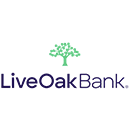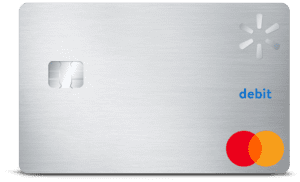

5 Best Credit Cards Of 2026
Compare the best credit cards of 2026, ranked by interest rates, sign up bonuses, potential monthly/ongoing fees charged, and past customer reviews.
Updated: February 28, 2026
At SmartWealthTrends, we value your trust.
SmartWealthTrends.com is a free online resource that provides visitors with valuable content and comparison features. To keep our resources 100% free, SmartWealthTrends.com attempts to partner with some of the companies listed on this page and may receive marketing compensation in exchange for clicks and calls from our site. Compensation can impact the location and order in which such companies appear on this page. All such location, order, and company ratings are subject to change based on editorial decisions.
Our Business Credit Card Partners Include But Are Not Limited To
Capital One, Chase, BMO Harris, & Discover.

CREDIT CARD
ANNUAL FEE
REWARDS RATE
INTRO OFFER
RATING
1
card_name
ANNUAL FEE
annual_fees
REWARDS RATE
1.25%
INTRO OFFER
20,000 Miles
- $0 annual fee and no foreign transaction fees
- Earn a bonus of 20,000 miles once you spend $500 on purchases within 3 months from account opening, equal to $200 in travel
- Earn unlimited 1.25X miles on every purchase, every day
2
card_name
ANNUAL FEE
annual_fees
REWARDS RATE
1.5%-6.5%
INTRO OFFER
$300
- INTRO OFFER: Earn an additional 1.5% cash back on everything you buy (on up to $20,000 spent in the first year) - worth up to $300 cash back!
- No minimum to redeem for cash back. You can choose to receive a statement credit or direct deposit into most U.S. checking and savings accounts. Cash Back rewards do not expire as long as your account is open!
- Member FDIC
3
card_name
ANNUAL FEE
annual_fees
REWARDS RATE
1-10%
INTRO OFFER
$200
- $0 annual fee and no foreign transaction fees
- Earn a bonus of 20,000 miles once you spend $500 on purchases within 3 months from account opening, equal to $200 in travel
- Earn unlimited 1.25X miles on every purchase, every day
4
card_name
ANNUAL FEE
annual_fees
REWARDS RATE
1.5x
INTRO OFFER
Discover Match®
- UNLIMITED BONUS: Unlimited Mile-for-Mile match for all new cardmembers - only from Discover. Discover gives you an unlimited match of all the Miles you've earned at the end of your first year. For example, if you earn 35,000 Miles, you get 70,000 Miles. There's no signing up, no minimum spending or maximum rewards. Just a Miles-for-Miles match.
- Automatically earn unlimited 1.5x Miles on every dollar of every purchase
- No annual fee
5
card_name
ANNUAL FEE
annual_fees
REWARDS RATE
1x-5x
INTRO OFFER
60,000 Points
- Earn 60,000 bonus points after you spend $4,000 on purchases in the first 3 months from account opening. That's $750 when you redeem through Chase Travel℠.
- Enjoy benefits such as 5x on travel purchased through Chase Travel℠, 3x on dining, select streaming services and online groceries, 2x on all other travel purchases, 1x on all other purchases, $50 Annual Chase Travel Hotel Credit, plus more.
- Member FDIC
Capital One VentureOne Rewards Credit Card
ANNUAL FEE
annual_fees
REWARDS RATE
1.25%
INTRO OFFER
20,000 Miles
- $0 annual fee and no foreign transaction fees
- Earn a bonus of 20,000 miles once you spend $500 on purchases within 3 months from account opening, equal to $200 in travel
- Earn unlimited 1.25X miles on every purchase, every day
OTHER BUSINESS BANKING COMPANIES


5 Best Bank Accounts for Landlords (Ranked & Reviewed)

Live Oak Bank Review 2026: Pros, Cons, Fees & $300 Bonus

Bluevine Business Checking Review: Earn 2.00% APY For Free

Grasshopper Bank Review: Free Business Bank With Up To 3.55% APY
RECENT ARTICLES

Walmart MoneyCard Review: Features, Fees, & Rewards


Found Business Checking Review 2026


5 Best Bank Accounts for Overdraft Protection (2026)
TOP BUSINESS LOANS SERVICES

Fundera

Lendio

BlueVine
The Best Business Bank Accounts of 2026
Any business, sole proprietorship, freelancer, or corporation should have a business bank account. This type of account offers a range of valuable features, such as compatibility with accounting and point-of-sale software, protection of personal assets, and so much more.
Understanding the benefits of a business bank account and how it can benefit your business will save you time and money and help you know how your company operates at a more granular level.
What is a business bank Account?
A business bank account is a type of financial account that is specifically designed for use by businesses rather than individuals.
Do I need a business bank account?
There are several reasons why you should open a business bank account. Perhaps the most important reason is to separate your personal and business finances.
This will help you track your business expenses and income more easily and make it easier to file your taxes.
A business bank account can also help you build your business credit history, help you manage your finances more efficiently, and make it easier to obtain a loan or credit in the future.
How to choose the best business bank account for your needs
Choosing your company's best business bank account can be challenging.
Still, ensuring that your business has the right tools and resources to manage its finances effectively is essential.
Here are some key factors to consider when choosing a business bank account:
Fees: Look for an account with low or no monthly and minimal transaction fees. Compare the costs of different bank accounts and choose the best value for your business.
Reputation: Research the reputation of the bank. Look for customer reviews and testimonials to see what other businesses have experienced with their accounts.
Support: Find out what kind of customer support the bank offers. Make sure they have a dedicated team to help you with any questions or issues with your account.
Bonuses: Check if the bank offers additional perks like cash back, sign-up bonuses, or discounts on business expenses, which can help you save money in the long run.
Integrations: Consider if the bank account can integrate with other software your business uses, such as accounting software or a point-of-sale system.
Top benefits of using a business bank account
Easier Expense Tracking: One of the best ways to save money within your business is by tracking your expenses. This can be difficult and time-consuming, but it's worth it in the long run when the tax season comes around. With a business bank account, you can easily track your expenses to know where your money is going. This way, you can ensure you're staying up to date with the business's books and not mixing personal expenses into these transactions.
Increased Business Credibility: When you have a business bank account, it shows you're serious about your business. This can help you build credibility with potential customers and clients since any checks and invoices will be made to the company name, not your personal one.
Build Business Credit: One of the best ways to build business credit is by using a business bank account. This is because when you use this type of account, your payments will be reported to the major credit bureaus. This way, you can establish a good payment history and improve your credit score. This will come in handy if you ever need to take out a business loan or line of credit.
Accept Credit Cards: In today's world, it's crucial to be able to accept credit cards as payment. This is because more and more people are using this method of payment, and if you're not able to accept it, you could be missing out on sales. With a business bank account, you can easily set up a merchant account so that you can start accepting credit cards. This will help you increase your sales and customer base.
Audit Protection: Businesses are always at risk of being audited by the IRS. This can be stressful and costly, but with a business bank account, you can have peace of mind knowing that your transactions are well-documented and organized. This way, if you are ever audited, you'll have everything you need to prove your expenses and deductions.
Best business bank account: Bluevine Business Checking Account
Bluevine, known initially as an online small business lender, has expanded its offerings by launching an online-only business bank account.
This account stands out from others with its high-interest rate and lack of fees, and setting up an account is simple and can be done online, with no minimum opening balance or monthly balance requirement.
The only fees associated with this account are $15 for outgoing wires and $30 for express delivery of a replacement debit card.
Additionally, the 2.0% annual percentage yield (APY) on all balances up to $250,000 may be particularly attractive for businesses with significant cash in their account.
This interest rate is higher than many other business bank accounts, which often have a higher balance requirement and lower interest rate if they offer interest at all.
Pros
- Opening a new BlueVine account can take as little as 3 minutes
- No minimum deposit or monthly minunum balances
- No monthly service fees, non-sufficient funds fees, transaction fees, or ATM fees
- Earn 2.0% APY on balances up to $250,000
Cons
- Mobile check deposits can often take up to 5 days to process
- Up to $4.95 in third-party fees for depositing cash in ATMs
Frequently Asked Questions
What is required to open a business bank account?
To open a business bank account, you will typically need the following items:
- Business name, address, and contact information
- Employer Identification Number (EIN) if you're an LLC or corporation
- Business registration documents (such as articles of incorporation)
- Proof of business address (such as a lease agreement or utility bill)
- Personal identification for all authorized signers on the account
- Details about the nature and type of business you operate
Some banks may also require a business plan, financial statements, and tax returns.
It's important to note that the specific requirements may vary depending on the bank and the business account you are opening.
Be sure to check with the bank or credit union you plan to use to verify the specific requirements.
What are the benefits of a business bank account?
A business bank account is designed to meet the financial needs of businesses. This type of account provides access to helpful features such as payroll and accounting integrations. Additionally, keeping business finances separate from personal finances by having a different bank account makes monitoring the company's financial performance simpler. In certain situations, having a separate bank account is necessary to maintain the legal distinctions and protections of operating a business.
When is the right time to transition to a business bank account?
Since many business bank accounts have low or no minimum balance requirement for opening and maintaining the account, it is advisable to open one as soon as you launch your business.
What’s the difference between a personal and business bank account?
The main difference between personal and business bank accounts is that the former is in an individual's name, and the latter is in the business's name. Additionally, business bank accounts may offer features that are specific to companies, such as the capability to send invoices or access employee debit cards. Banks also may charge additional or different fees for business accounts, such as transaction fees.
What’s the best business bank account?
The most suitable business bank account for you will vary based on the nature of your business and the specific services required. Online accounts may be appropriate for companies that do not handle or receive cash payments, while physical bank accounts may be more appropriate for retail businesses. Regardless of the type of account, it's essential to consider the benefits, features, and fees offered.
Can a business have multiple bank accounts?
It is possible to open multiple bank accounts for your business, such as one for depositing cash and another for an online account that earns interest for keeping most of your funds.
Are business bank accounts insured?
Business bank accounts are also eligible for Federal Deposit Insurance Corporation (FDIC) insurance, which provides coverage of up to $250,000 per person per bank. Verify with your bank to confirm that your account is covered under this insurance. Additionally, if you open an account with a credit union, you may be covered by National Credit Union Administration (NCUA) insurance instead of FDIC.
